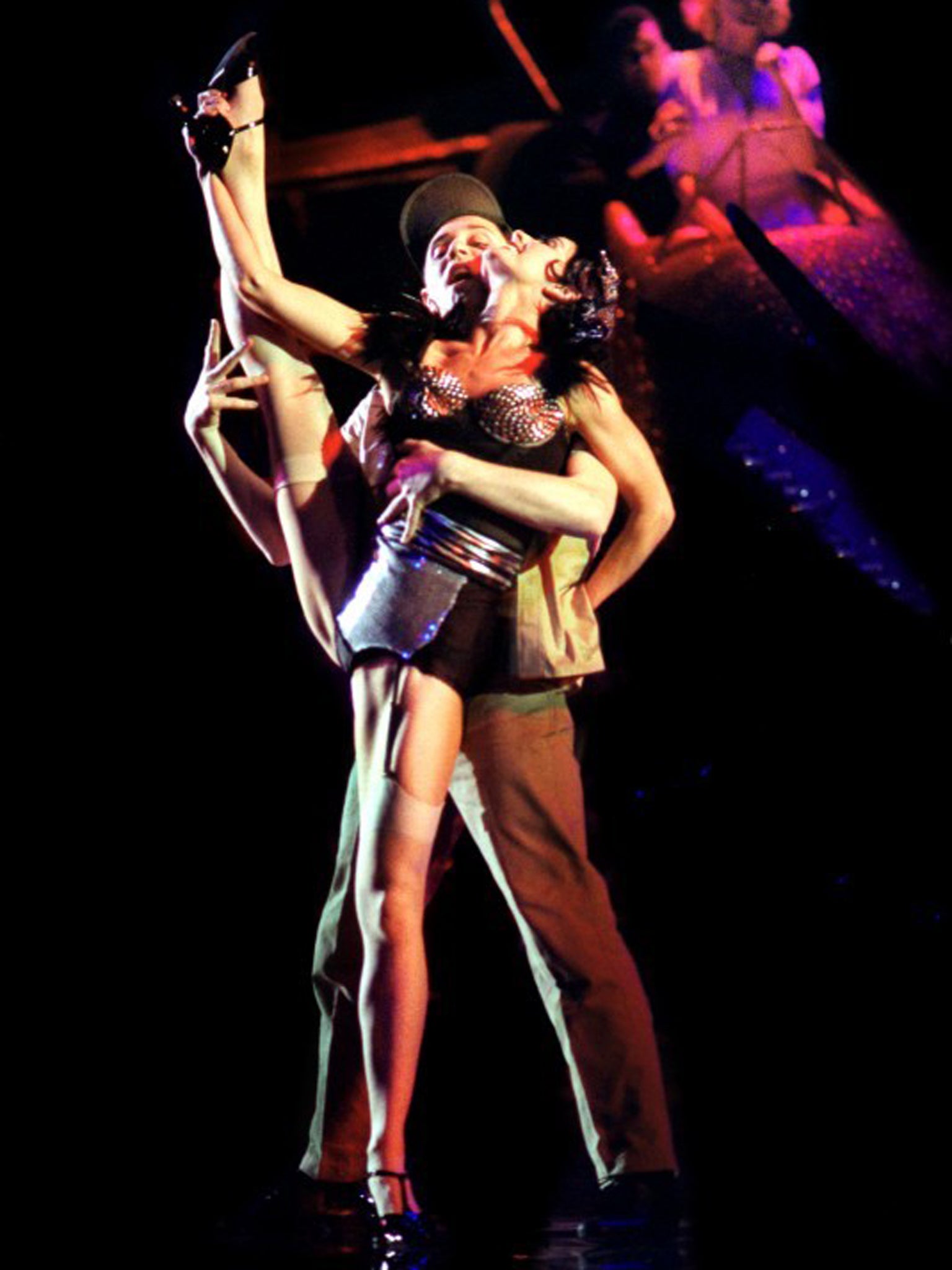Classical review: Medea - Hello, sailor! The fleet's in and it's one hell of a show

All the nice girls love a sailor. But so do the mad girls and the bad girls. Exquisitely bored by the monotonous hum and click of sewing machines and knitting needles in a snowbound fishing village, Senta annihilates herself for love of the cursed hero of The Flying Dutchman. Enraged by rejection, and pressed on all sides by the complex politics of an uneasy military alliance, the sorceress Medea slaughters her children and poisons her rival to wring hot tears from the cold eyes of unfaithful Jason.
Hitherto unstaged in Britain, Charpentier's Médée is shorn of its triumphal prologue in David McVicar's production for ENO. There is glitz enough in what remains: a dazzling cabaret of sequinned hotpants, crotch-hugging bell-bottoms and boozy Allied Forces socials in a requisitioned palazzo in the Second World War, while Sarah Connolly's Medea does what operatic heroines do and becomes a monstrous icon of herself.
First to go is the immaculate hair, then the sharp tailoring, the court shoes, the inhibitions, the semblance of humanity. Directed from the harpsichord by Christian Curnyn, the orchestra swarms around Connolly's delirious, furious voice, an eerie cloud of muted strings and fluttering recorders, the gloaming to the arc light of trumpets and oboes that greets Creon (Brindley Sherratt), Jason (Jeffrey Francis), and the swaggering American airman Orontes (Roderick Williams).
Charpentier, whose career had been thwarted at every turn by Lully, threw everything he had into Corneille's tragédie lyrique, cheekily adding an Italian aria in Act II. McVicar does the same. Imagine In Which We Serve remade by Bob Fosse, a lindy-hopping extravaganza featuring a glittering full-sized Spitfire (choreography by Lynne Page). Throw in the brooding glamour of a Joan Crawford vehicle (lighting by Paule Constable), turn Katherine Manley's Creusa into the "fair Miss Frigidaire" of High Society (designs by Bunny Christie), then cut to Fatal Attraction. In the text and on the stage, Medea's infanticide is almost an afterthought. What are two dead human children when you can give birth to bloody Vengeance (Oliver Dunn) and Jealousy (John McMunn), and a wardful of zombie nurses and war-wounded? Want to see eight pudenda used as fists? Look no further.
Charpentier's music is tailored precisely to the rhythm and timbre of his mother tongue. Translating this bitch of an opera is a bitch of a job, though Christopher Cowell's Nahum Tate-ish libretto places us squarely in the late 17th century. Along with a text-responsive trio of gamba and theorbos, ENO has assembled a cast whose love of language informs every note – not just the incandescent Connolly and Williams (their Act III duet is the musical highlight), but young artists Aoife O'Sullivan, Sophie Junker and Rhian Lois. Scene changes pass in the blink of an eye, while small details register crisply – the brisk smoothing of telephonists' skirts when Jason, already yesterday's man, passes by. To those who love Médée, McVicar will seem to have tried too hard to entertain those who don't. All the same, what a show. What music. And what a monster.
In Belfast, another heroine achieved self-actualisation with a kitchen knife. Without a cliff to throw herself off, Giselle Allen's Senta calmly turned her back on the audience for Oliver Mears's Northern Ireland Opera production of The Flying Dutchman (Grand Opera House ****) and cut her throat, staggering ecstatically to her death.
Allen was the unguarded, unstinting heart of a thrifty but thrilling Wagner debut from a company that is barely two years old. Her passion for Bruno Caproni's Dutchman was made more explicable by the awkward affection of Paul McNamara's Erik than by Caproni's Michael Howardish vowels ("terry-bill woo-man").
In the pit, Nicholas Chalmers whipped the Ulster Orchestra into a storm. The vivacious women's chorus, purse-lipped froideur of Doreen Curran's Mary, bright machismo of Adrian Dwyer's Steersman, and distracted bluster of Stephen Richardson's Daland deserve to be seen for more than two performances. Now NI Opera has tackled its first Wagner, it is time for its first revival.
'Medea' (020-7845 9300) to 16 Mar
Critic's Choice
Bernarda Fink joins the Academy of Ancient Music in pieces by Vivaldi and others at London's Wigmore Hall (Mon) and Cambridge's West Road Concert Hall (Wed). Matthias Pintscher directs the BBC Scottish Symphony Orchestra and Johannes Moser in Lutoslawski's Cello Concerto and Beethoven's Seventh at Glasgow's City Halls(Thu).
Join our commenting forum
Join thought-provoking conversations, follow other Independent readers and see their replies
Comments
Bookmark popover
Removed from bookmarks